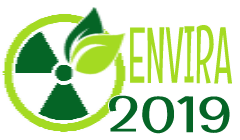France is set to host a meeting of ministers from 16 pro-nuclear European states. The objective of the meeting is to coordinate the expansion of nuclear power and encourage the European Union (EU) to acknowledge its significant role in achieving the climate goals for 2050.
The meeting in Paris will bring together key participants, including EU Energy Commissioner Kadri Simson, representatives from 14 EU member states such as France, Belgium, and the Netherlands, and observers from Italy. Additionally, the United Kingdom, although no longer part of the EU, has been invited to attend the meeting as a non-EU participant.
According to a French ministry official, the participation of the United Kingdom is particularly valuable due to their ongoing construction of two reactors. Their presence at the meeting would provide an opportunity to exchange valuable insights and information regarding economies of scale in nuclear power.
During the meeting, each participating country will provide an update on its respective nuclear projects. The aim is to assess the potential for synergies and coordination in areas such as financing, job training, and recruitment. This collaborative effort seeks to stimulate the revitalization of the nuclear sector throughout Europe.
Yves Desbazeille, the director of Nucleareurope, an EU lobby group, will deliver a presentation during the meeting. His presentation will include valuable information on potential job creation and investment opportunities in the nuclear sector.
According to a draft of the post-meeting statement obtained by Reuters, the participating countries will urge the commissioner to incorporate nuclear energy into the EU’s energy policy. They emphasize the importance of recognizing nuclear power as a viable and green energy technology, aligning it with other renewable sources, in order to achieve the EU’s decarbonization goals.
According to the French official, the discussions will encompass various subjects, including the EU Net Zero Industry Act, the Hydrogen Bank, definitions of low-carbon hydrogen, and strategies for hydrogen imports. Furthermore, the draft document emphasizes the need for the EU to release a communication specifically addressing small modular reactors.
The statement, subject to potential modifications before its adoption on Tuesday, outlines the intention of participants to increase the EU’s nuclear capacity to 150 gigawatts by 2050, up from the current 100GW, by constructing 30 to 45 new reactors of varying sizes.
An official from the European Commission stated that Commissioner Simson’s participation is a clear indication of active attention towards a burgeoning industry and a crucial technology for achieving net-zero emissions. However, the Commission maintains its limited role and neutral stance, as any declaration signed would solely involve national representatives.
The prominence of nuclear energy in the EU’s energy policy agenda increased this year as countries divided into pro- and anti-nuclear factions over the inclusion of nuclear power in the calculation of EU renewable energy targets.
Following a last-minute agreement reached on that legislation, France and other pro-nuclear countries are now aiming to enhance the position of nuclear energy in a wider context and strengthen cooperation among nations that utilize this technology.
Nuclear energy is viewed as a significant contributor to generating large-scale, carbon-free electricity consistently. Several European countries, including Poland, are considering the construction of their first reactors to facilitate the transition away from fossil fuels. Land-locked states like the Czech Republic consider nuclear power a crucial source of green energy, particularly since they lack the option to develop extensive offshore wind farms available to coastal states.
EU countries opposed to nuclear energy, including Germany, which recently shut down its last reactors, as well as Luxembourg and Austria, raise concerns regarding issues such as waste disposal and maintenance problems that have affected the French nuclear fleet in recent times. Austria and Luxembourg have taken legal action against the EU over its decision to classify nuclear investments as “green” in official terms.
